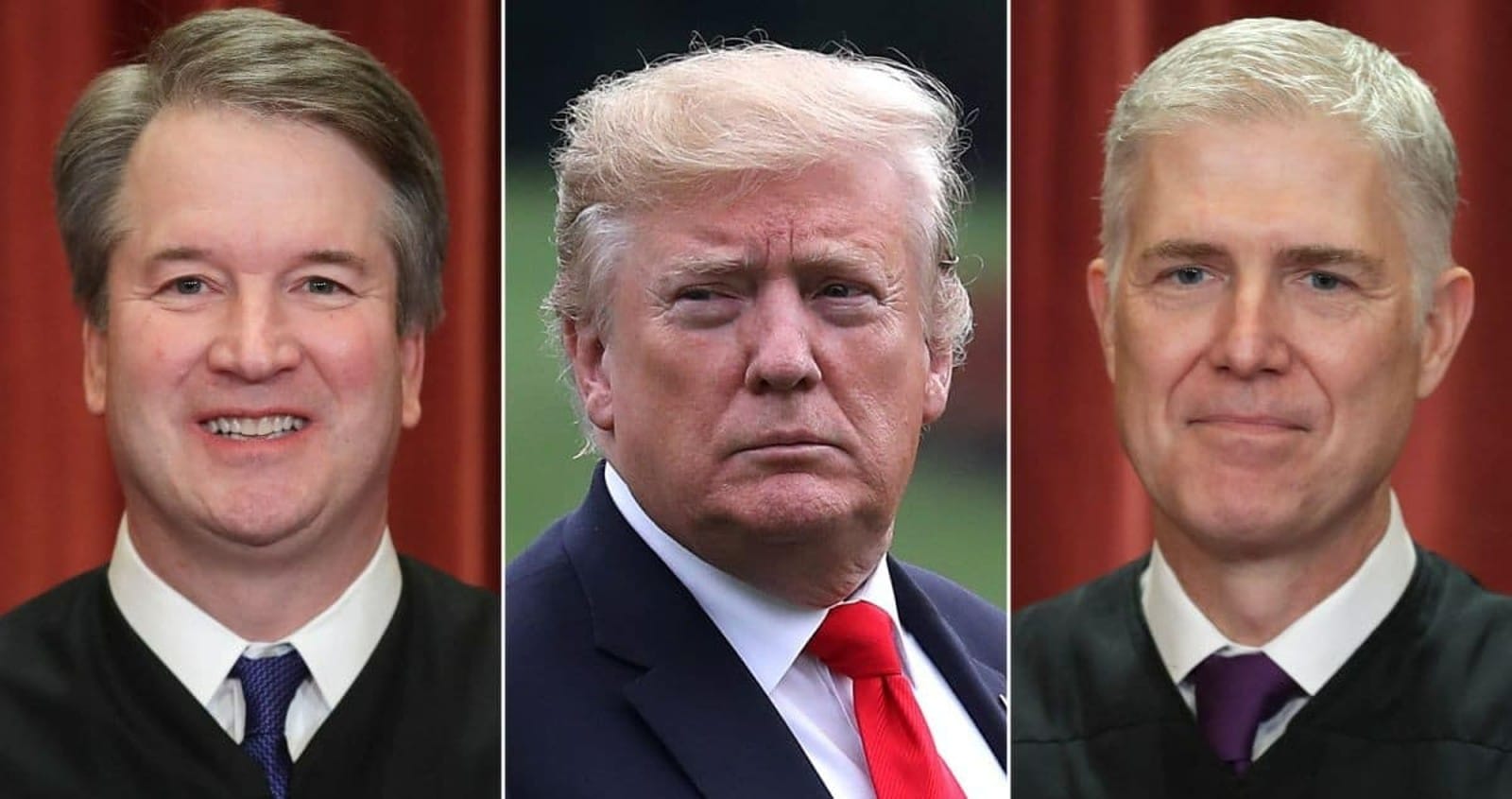OPINION: This article may contain commentary which reflects the author's opinion.
The U.S. Supreme Court handed former President Donald Trump a major 2024 election victory on Monday regarding a constitutional challenge to having his name appear on the ballot next year.
According to CNN, the nation’s highest court refused to hear a challenge from a long-shot GOP presidential contender who sought to prevent Trump’s name from appearing on the ballot under a provision of the 14th Amendment.
“The case was brought by John Anthony Castro, a little-known candidate for the Republican presidential nomination, who sued Trump earlier this year in an effort to disqualify him from running for president and holding the office ‘given his alleged provision of aid or comfort to the convicted criminals and insurrectionist that violently attacked our United States Capitol on January 6, 2021,'” CNN reported, citing the lawsuit.
The outlet said the case was rejected without any comment or recorded vote.
“The framers of Section 3 of the 14th Amendment specifically designed it to remove overwhelming popular pro-insurrectionists from the ballot. As such, Castro is not simply within the ‘zone’ of interests; Castro is the precise type of person that the framers of Section 3 of the 14th Amendment specifically sought to politically protect while Trump is the precise type of person they sought to disqualify,” Castro argued before justices in court papers.
Previously, a lower federal court ruled that he lacked standing to bring the matter to court. His petition to the Supreme Court sought a ruling on whether he did indeed have the legal right to pursue the case.
“A primary candidate has judicial standing to bring a claim challenging the eligibility of a fellow primary candidate for competitive injury in the form of a diminution of votes and/or fundraising if the primary candidate believes that the fellow primary candidate is ineligible to hold public office and to prevent actions irreconcilable with the U.S. Constitution,” Castro told the justices in court papers.
Last month, Katherine Fung wrote in Newsweek that the U.S. Supreme Court’s decision on whether or not to hear a case claiming Trump is no longer qualified to run for federal office under the 14th Amendment was one he “can’t afford to lose.”
“Castro, a Texas tax attorney, claims that Trump participated in an insurrection against the U.S. government by organizing his rally against certification of the 2020 election on Jan. 6, 2021. He is a declared candidate for the Republican nomination and has previously run for various offices. Castro ran for his first race in 2004 as a Democrat. He is currently running as a write-in candidate,” the outlet 1945 reported.
In June, U.S. District Judge Aileen Cannon, the federal judge appointed by Trump who is also overseeing Castro’s classified documents case in Miami, dismissed Castro’s initial lawsuit.
Fung notes:
Castro is arguing that because he and Trump are appealing to the same voters and donors, Trump’s candidacy—which he argues is unconstitutional because of Trump’s involvement in the January 6, 2021, Capitol riot—would cause him “political competitive” injuries.
The disqualification clause in the 14th Amendment blocks individuals from holding public office if they have “engaged in insurrection or rebellion” against the United States. Trump has not been charged with insurrection, although he has been indicted in a federal case involving his efforts to overturn the 2020 presidential election.
She added that should Trump be kicked off the ballot in any key state, that would doom his chances of winning the presidency.
“If SCOTUS [the Supreme Court] rules in my favor, his name cannot appear on the ballot in *any* state because the Constitution’s election clause giving states power over elections only applies to congressional races,” Castro told Newsweek. “It would be a nationwide permanent injunction against all state election officials to keep his name off the ballots and not count any of his write-in votes.”
Castro has filed federal lawsuits in a total of 14 states, including Alaska, Arizona, Idaho, Kansas, Maine, Montana, New Mexico, Nevada, North Carolina, Oklahoma, Pennsylvania, Utah, West Virginia, and Wyoming. Additionally, he plans to file similar suits in blue states such as Massachusetts, “side-stepping red circuits [and neutralizing] their influence.”
“Unfortunately, it’s all or nothing,” Castro said. “SCOTUS is the only body that can give a final answer as to all 50 states.”
